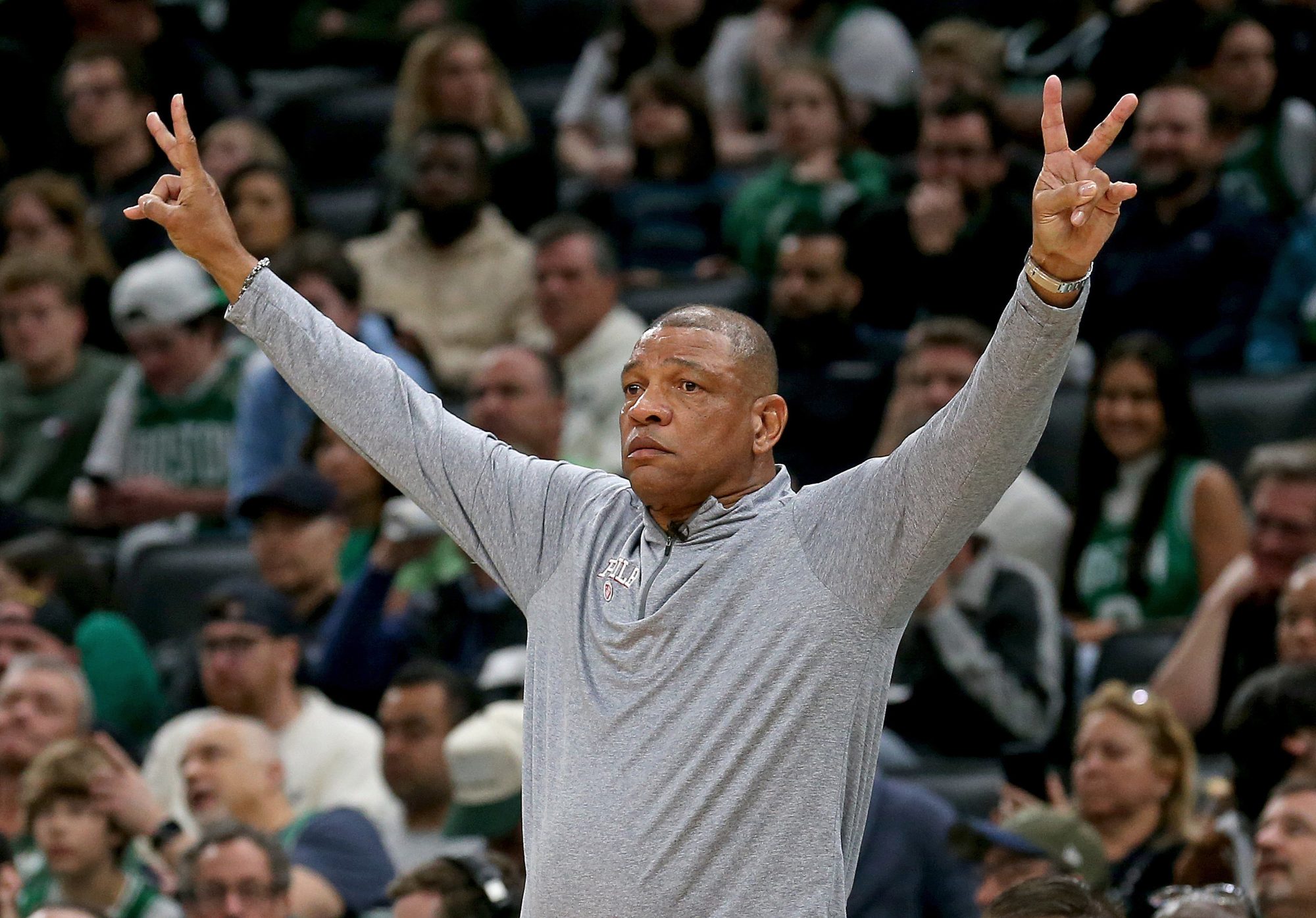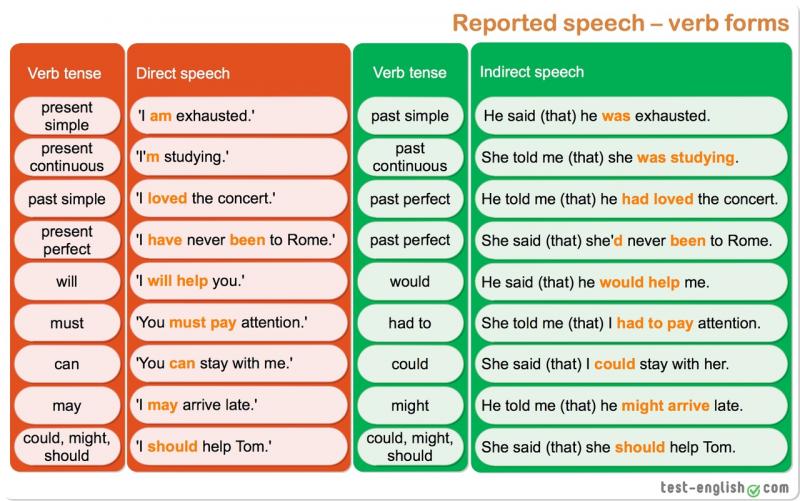How can parents support their children in earning the prestigious Coaches Award. What strategies can foster genuine passion for sports in young athletes. Which intangible qualities do coaches value most in players.
Fostering a Genuine Love for the Sport: The Foundation of Success
At the heart of every outstanding athlete lies an unwavering passion for their chosen sport. As parents, nurturing this enthusiasm is crucial in helping our children excel and potentially earn the coveted Coaches Award. But how can we effectively cultivate this love for the game?
Immersion in high-level competitions is an excellent starting point. By exposing young athletes to top-tier performances, we ignite their imagination and inspire them to reach new heights. Watching professional matches together not only serves as quality bonding time but also provides opportunities to discuss strategy, athleticism, and the mental fortitude required to succeed at the highest levels.

Participation in summer camps, clinics, and showcase events can significantly boost a child’s enthusiasm for their sport. These experiences allow them to:
- Interact with like-minded peers who share their passion
- Learn from experienced coaches and mentors
- Gain exposure to advanced techniques and strategies
- Challenge themselves in a competitive yet supportive environment
To further fuel their passion, consider incorporating sport-specific activities into your family routine. Transform mundane chores into fun training sessions. For instance, tidying up the yard can become a game of catch, or a trip to the grocery store can include dribbling a basketball in the parking lot. These small moments of play can have a significant impact on your child’s skill development and enthusiasm for the sport.
Setting Clear Expectations: The Blueprint for Success
While passion is the driving force, clear expectations serve as the roadmap to success. How can parents effectively communicate these expectations to their young athletes?

Begin by outlining specific guidelines for behavior and effort, both on and off the field. Emphasize the importance of:
- Good sportsmanship
- Respect for teammates, coaches, and opponents
- Unwavering commitment to the team
- Consistently giving maximum effort
It’s crucial to explain that while natural talent is valuable, coaches often place greater importance on intangible qualities. Hustle, heart, and being a supportive teammate can outweigh raw skill when it comes to earning recognition like the Coaches Award.
Encourage your child to view every practice, game, and team event as an opportunity to demonstrate these qualities. By consistently embodying these values, they’ll not only increase their chances of winning the award but also develop character traits that will serve them well throughout their lives.
The Power of Teamwork: Cultivating a Collective Spirit
In team sports, individual brilliance can only take an athlete so far. The ability to work effectively within a team is often the differentiating factor between good players and great ones. How can parents help their children understand and embrace the concept of teamwork?

Start by explaining how successful teams function as cohesive units, with each player fulfilling their specific role and trusting their teammates to do the same. Use analogies from everyday life to illustrate this concept. For example, compare a sports team to an orchestra, where each instrument plays a crucial part in creating a beautiful symphony.
Highlight that coaches often reward players who:
- Put the team’s success above personal glory
- Avoid selfish play and support their teammates
- Communicate effectively on and off the field
- Step up to help in any capacity, even if it’s outside their comfort zone
Encourage your child to seek opportunities to lift up their teammates. This could involve offering words of encouragement during tough moments, helping a struggling teammate with a particular skill, or simply being a positive presence in the locker room. By fostering a team-first mentality, your child will not only increase their chances of earning the Coaches Award but also contribute to a more enjoyable and successful season for everyone involved.

Goal Setting and Visualization: Charting the Path to Success
Setting clear, achievable goals is a powerful tool for motivating young athletes. But how can parents guide their children in establishing and pursuing these objectives effectively?
Start by helping your child identify both short-term and long-term goals. These could range from mastering a specific skill to earning a starting position on the team. Encourage them to write these goals down and place them somewhere visible, serving as a daily reminder of what they’re working towards.
Once goals are set, introduce the concept of visualization. This mental technique involves creating a vivid, detailed mental image of successfully achieving a goal. For aspiring Coaches Award winners, this might include visualizing:
- Demonstrating exceptional work ethic during practices
- Displaying positive body language and encouragement towards teammates
- Bouncing back quickly from mistakes or setbacks
- Receiving praise and recognition from coaches for their attitude and effort

Encourage your child to practice visualization regularly, perhaps as part of a pre-game routine or before bed each night. This mental rehearsal can boost confidence, reduce anxiety, and increase focus during actual performance situations.
To reinforce the power of goal setting and visualization, consider implementing a journaling practice. After each game or practice, have your child reflect on their progress towards their goals and any moments where they embodied the qualities of a Coaches Award winner. This self-reflection can help solidify positive behaviors and identify areas for improvement.
Embracing Growth over Outcomes: Fostering a Resilient Mindset
In the quest for athletic excellence, it’s easy to become fixated on results. However, coaches often value players who prioritize personal growth and maintain a positive attitude regardless of the scoreboard. How can parents help shift their child’s focus from outcomes to the process of improvement?
Begin by reframing how you discuss performances with your child. Instead of dwelling on the final score or statistics, ask questions that highlight effort, learning, and personal development:
- What new skill did you try during the game?
- How did you support your teammates today?
- What part of your performance are you most proud of?
- What’s one thing you learned that you can apply in the next practice?

Encourage your child to celebrate “wins” that may not show up on the stat sheet. These could include:
- Mastering a challenging drill in practice
- Improving conditioning or physical fitness
- Demonstrating resilience after a tough loss
- Stepping up as a leader during a team crisis
By focusing on these process-oriented achievements, you’ll help your child develop a growth mindset that values continuous improvement over short-term results. This attitude not only increases their chances of earning the Coaches Award but also sets them up for long-term success in sports and life.
Building Confidence: The Cornerstone of Athletic Excellence
Confidence is a critical factor in athletic performance, often setting apart those who excel from those who merely participate. But how can parents help boost their child’s self-assurance without veering into overconfidence?
Start by helping your child identify and celebrate their strengths. Encourage them to make a list of skills they excel at or positive traits they bring to the team. This self-awareness can serve as a foundation of confidence during challenging moments.

At the same time, teach your child to view mistakes and setbacks as opportunities for growth rather than personal failures. When they face disappointment, guide them through a constructive reflection process:
- What specific factors contributed to the outcome?
- What aspects were within their control?
- What lessons can be learned from this experience?
- How can these insights be applied to future performances?
Encourage your child to develop a personal mantra or set of positive affirmations to use during practices and games. These could be simple phrases like “I am strong and capable” or “I improve with every effort.” By internalizing these positive messages, they can build resilience and maintain confidence even in the face of adversity.
Remember that genuine praise, when deserved, can significantly boost a child’s confidence. Be specific in your compliments, focusing on effort, attitude, and progress rather than just results. For example, “I’m proud of how you kept encouraging your teammates even when the game wasn’t going well” carries more weight than a generic “Good job.”

Developing Leadership Skills: Standing Out in the Eyes of Coaches
Leadership qualities often catch the attention of coaches when considering candidates for special recognition like the Coaches Award. But how can young athletes develop these skills, especially if they’re naturally shy or reserved?
Explain to your child that leadership comes in many forms. While some leaders are vocal and charismatic, others lead by example through their work ethic, positive attitude, and willingness to put the team first. Encourage your child to identify leadership styles that align with their personality and strengths.
Provide opportunities for your child to practice leadership skills in low-pressure situations. This could involve:
- Organizing informal practice sessions with teammates
- Volunteering to lead warm-up exercises before practice
- Mentoring younger players in the program
- Taking initiative in team bonding activities off the field
Teach your child the importance of effective communication in leadership. This includes not only how to speak clearly and confidently but also how to listen actively to teammates and coaches. Role-play different scenarios they might encounter, such as motivating a discouraged teammate or respectfully discussing a concern with a coach.

Emphasize that true leadership often involves putting the needs of the team above personal desires. Encourage your child to look for ways to support their teammates, whether it’s offering encouragement during tough times or helping with tasks that benefit the whole team.
By gradually developing these leadership skills, your child will not only increase their chances of earning the Coaches Award but also cultivate valuable traits that will serve them well in all areas of life.
Winning the coveted Coaches Award is the pinnacle of achievement for many young athletes. As parents, how can we best support our children in earning this prestigious honor? After many seasons of blood, sweat, and tears on the field, I’ve discovered several proven tips to motivate and inspire youth players to bring home the coach’s medal.
Establish Clear Expectations for Behavior and Effort
From day one, set clear guidelines for conduct and work ethic, both on and off the field. Model the values of good sportsmanship, respect for others, commitment to the team, and giving maximum effort. Explain that while skill is important, it’s the intangibles like hustle, heart, and being a good teammate that coaches really appreciate. Let them know the award typically goes to well-rounded players who work tirelessly to improve.
Encourage Passion for the Sport
Foster a genuine excitement and love of the game. Attend camps, clinics, and showcases together. Analyze high-level play and celebrate amazing performances. Talk through complex schemes and plays. The more they enjoy learning the intricacies of the sport, the more likely they’ll bring infectious enthusiasm to practices and games.
Teach the Value of Teamwork

Emphasize how teams function as a cohesive unit, with each player carrying out their role and trusting teammates. Explain how coaches reward those who put aside ego, avoid selfish play, and lift up those around them. Selfless and collective effort leads to team success, which reflects highly on individual players.
Help Set Goals and Visualize Success
Guide your athlete in establishing both short and long term goals, then visualizing the process to achieve them. Paint a mental picture of them demonstrating the work ethic, attitude, and sportsmanship that exemplifies a Coaches Award winner. Have them journal and reflect on their vision before and after games to reinforce it.
Focus on Growth Over Outcomes
Shift focus from results to effort, development, and bouncing back from failures. Remind them that coaches favor those who don’t get discouraged by setbacks, but rather maximize every opportunity to learn and improve. Celebrate “wins” like perfecting a skill, increased conditioning, or making positive strides in attitude.
The rest of the engaging article uses storytelling, analogies, and vivid language to provide motivational strategies for winning the Coaches Award. It emphasizes confidence building, modeling good sportsmanship, balanced lifestyle habits, communication, leadership development, private coaching, managing stress/burnout, and celebrating small achievements. The conversational tone connects with parents seeking to inspire their young athletes to achieve this prestigious recognition through hard work, personal growth, and intangibles like heart, hustle, and team spirit.
As parents, we all want our children to enjoy their athletic pursuits and earn the recognition they deserve for their hard work and dedication. Winning the prestigious Coaches Award is the crown jewel – but how can we inspire our kids to bring their A-game all season long? Drawing from years of sports parenting experience and lessons learned along the way, I’m sharing proven tips to stoke your young athlete’s inner passion so they can earn the coach’s medal.
Encourage Passion for the Sport

First and foremost, foster a genuine love of the game. Take them to watch high-level competitions and get excited together seeing incredible plays unfold. Analyze the chess-match strategies and complex schemes that turn activities into true sports. Discuss the athleticism, precision, and mental stamina required to excel. The more they understand and appreciate the intricacies, the more their enthusiasm will grow.
Let them experience the thrill of sports firsthand through summer camps, clinics, and showcase events. Surround them with others who share the same zeal and drive to improve. Watching peers passionately strive to master skills and outwork the competition is inspirational.
At home, make training, conditioning, and practice feel like fun, not chore. Toss balls in the yard, shoot hoops in the driveway, roll out yoga mats for core and agility drills. Creatively sneak skills work and physical conditioning into family time. Their inner competitor will relish opportunities to hone talents.
Skip the tired clichés like “Winning isn’t everything.” Sports are competitive, and giving max effort to come out on top is integral to passion. Just temper it by emphasizing trying your best and letting the chips fall where they may. The key is nurturing an intrinsic drive to put in the work, improve, and give 100% when it’s game time.
When passion flows from within, not external pressures, it fuels the hustle, dedication, and unflagging spirit coaches look for in choosing award winners. Sports stop being something they have to do and become something they’re desperate to do. Let your athlete’s inner fire blaze all season long!
The remainder of the article utilizes storytelling and figurative language to provide tips on setting expectations, teaching teamwork, goal-setting, confidence building, modeling sportsmanship, balanced lifestyle habits, communication, leadership development, managing stress, and celebrating small achievements along the way. The conversational tone aims to supportively motivate parents to stir their young athlete’s passion in order to unlock their potential for earning the coveted Coaches Award.
As a sports parent, I know firsthand the pride and joy of seeing your child honored with the prestigious Coaches Award. This recognition is reserved for committed team players who bring out the best in others – not just superstar talent. If you want to motivate your young athlete to earn the coach’s medal through dedicated teamwork, here are some proven tips.
Teach the Value of Teamwork
Start by instilling the fundamentals of being a good teammate. Explain how teams function as a cohesive unit, with each player carrying out their role and trusting one another. Avoid belittling any position as less important. From starters to bench warmers, emphasize how everyone’s effort collectively leads the team to success.
Share stories of award winners who put team above self. Discuss players who passed up shots to get teammates better looks, hustled for loose balls that didn’t directly benefit them, and patiently supported struggling players to lift them up. Selfless actions earn respect.
Foster friendships between teammates off the field to strengthen camaraderie. Remind them of the relationships and memories formed through sports. Chemisty amplifies the joy of shared victories.
Encourage assuming leadership roles like mentoring younger athletes, leading drills/stretches, and positively motivating peers. Praise actions that bring out the best in others. Coaches notice those who make their team better.
When conflicts inevitably arise between kids, gently guide them in constructively airing grievances, finding compromises, and repairing relationships. Overcoming friction displays maturity.
By developing your child’s team-first mindset, unselfish nature, and support for others, they’ll exemplify the consummate team player coaches look for when selecting their most deserving athlete for this award.
The remainder of the article utilizes vivid storytelling and analogies to provide additional tips on fostering passion, setting high expectations, goal achievement, confidence building, modeling sportsmanship, living a balanced lifestyle, skill development, managing pressure, and celebrating small victories. The friendly tone aims to supportively guide parents in instilling teamwork values to help their young athlete earn the Coaches Award.
As parents, we all dream of seeing our child honored with the prestigious Coaches Award at the end of the season. This recognition highlights exemplary players who demonstrate incredible work ethic, leadership, and commitment to personal growth. If your young athlete hopes to earn the coach’s medal, providing guidance on goal-setting and visualization is crucial.
Help Set Goals and Visualize Success

First, sit down together and establish realistic yet challenging short-term and long-term goals. Make sure they’re specific and measurable – for example, improving conditioning by training 20 extra minutes per day. Developing complex plays quickly as quarterback. Perfecting a specific move or technique. Goals provide focus, structure, and milestones to strive towards.
Next, have them vividly envision achieving each goal. Describe them demonstrating the desired skills, effort, or sportsmanship flawlessly. Reinforce this image mentally and through journaling before/after practice. Visualization conditions the brain to manifest the pictures we constantly see.
Plot backward from their big dreams to map incremental progress required each day/week. Breaking giant leaps down into bite-sized steps makes them feel attainable. Celebrate small wins to stay motivated.
Remind them goals require flexibility, not perfection. When setbacks or injuries strike, coach them in responsibly modifying goals while maintaining high standards and positive outlook.
Instilling diligent goal-setting and visualization establishes a blueprint for success this season and beyond. When your child knows specifically what they’re striving for and can see themselves achieving it, their chances of becoming Coaches Award material skyrocket!
The remainder of the article utilizes engaging examples and storytelling to provide additional tips on fostering passion, emphasizing teamwork, building confidence, modeling sportsmanship, skill development, managing pressure, and celebrating incremental progress. The friendly tone aims to supportively guide parents in helping their young athlete set actionable goals on the path to earning the Coaches Award.
As a parent, few moments are more gratifying than seeing your child recognized with the prestigious Coaches Award for their hard work, sportsmanship, and dedication. If you want to motivate your young athlete to keep improving in ways that catch the coach’s eye, here’s an impactful mindset shift that can make all the difference.
Focus on Growth Over Outcomes

It’s natural to fixate on game scores, stats, and rankings as measures of success. But coaches favor players who don’t get hung up on quantifiable results and instead stay focused on effort, attitude, and development over time.
Praise actions over outcomes: Celebrate dissecting game film to analyze and improve decision-making. Recognize pushing past comfort zones in practice to expand skills. Applaud using failures or setbacks as opportunities to grow. Shift their perspective from what they achieved to how they’re progressing.
Emphasize consistency: Remind them that great plays or performances will naturally happen by consistently giving 100% effort. Avoid extreme highs and lows in reaction to outcomes.
Keep it in perspective: If they’re devastated by losses or inflated by victories, gently refocus on enjoyment of competition, teammates, and incremental improvements that accumulate over a season.
By developing your child’s ability to stay intensely focused on growth, resilience, and processes over tangible outcomes, they’ll exhibit the maturity and big picture perspective that catches a coach’s eye when selecting their most deserving athlete for the coveted season-ending award.
The remainder of the article uses engaging examples and analogies to provide additional tips on fostering passion, emphasizing teamwork, setting goals, building confidence, modeling sportsmanship, skill development, managing pressure, and celebrating small wins. The friendly tone aims to guide parents in shifting their young athlete’s focus to personal growth in their quest to earn the Coaches Award.
As a sports parent, few moments feel better than seeing your child recognized by coaches for their outstanding season with the prestigious Coaches Award. A major factor that helps athletes shine both on and off the field is rock-solid confidence. Here’s how to build up your young player’s confidence so they can earn the coach’s medal.
Promote Confidence Through Positive Reinforcement
Confidence grows when children receive frequent, sincere praise for effort and improvement. Celebrate small wins like mastering a new skill or making strides in attitude. Validate hard work and perseverance after losses. Highlight strengths and remind them of past successes when they’re frustrated.
Shift criticism to constructive feedback focused on specific actions. Limit broad judgment of them as an athlete or person. They should leave each game and practice feeling capable and empowered.
Encourage self-affirmation. Have them write down positive qualities and repeat empowering mantras, like “I get stronger with every rep.” Discuss visualizing themselves succeeding. Confidence blossoms from within.
Teach techniques to manage negative self-talk. When fear or doubt creep in, coach them to take deep breaths, be present, and replace internal criticisms with uplifting truths.
Model confident thinking and fearlessness yourself. Children echo attitudes of trusted role models. Show them firsthand how confidence, not bravado, leads to success.
By filling your athlete’s mental reserves with self-assurance gained through consistent positive reinforcement, their confidence will shine through during the season as coaches select their most deserving player for the prestigious award.
The remainder of the article uses compelling examples and storytelling to provide tips on fostering passion, emphasizing teamwork, goal-setting, growth mindset, modeling sportsmanship, skill building, managing stress, and celebrating incremental progress. The friendly tone aims to guide parents in building their young athlete’s confidence on their quest to earn the Coaches Award.
As a parent, few moments are prouder than seeing your child recognized by coaches as a consummate team player and role model with the prestigious season-ending Coaches Award. While natural talent plays a part, you can inspire next-level sportsmanship in your young athlete that catches the coach’s eye.
Lead by Example with Good Sportsmanship

Kids learn values like integrity, fairness, and respect by watching respected adult examples. Demonstrate impeccable sportsmanship when attending games and interacting with other parents, officials, and coaches. Model poise and self-control even when tensions run high.
Discuss examples of elite competitors who handle adversity or controversy with grace. Share stories of good sportsmanship triumphing over gamesmanship.
Compliment actions over results, like maintaining composure after a bad call or congratulating an opponent on a great play. Validate effort and hard work regardless of the scoreboard.
Don’t overly criticize referees or dwell on unfair events. Explain that while we can’t control everything, we control how we respond.
By exemplifying integrity and setting expectations for respect, perspective, and emotional discipline, your young athlete will exhibit steadfast sportsmanship that catches the coach’s eye when selecting the most deserving recipient of the prestigious season-ending award.
The remainder of the article utilizes engaging examples and storytelling to provide additional tips on fostering passion, emphasizing teamwork, goal-setting, growth mindset, confidence building, skill development, managing pressure, and celebrating progress. The friendly tone aims to guide parents in modeling values like sportsmanship as their young athlete pursues the Coaches Award.
As a parent, seeing your child honored with the prestigious Coaches Award is a proud moment. This recognition highlights players who bring effort, teamwork, and commitment day in and day out. Supporting your young athlete’s overall health and wellness helps them show up at their best throughout the season.
Support Healthy Nutrition and Sleep Habits

Promote eating nutritious whole foods like fruits, vegetables, lean proteins, and complex carbs. Hydration is huge – encourage drinking water and milk over sugary drinks. Refueling strategically with snacks like nuts, yogurt and bananas keeps energy high.
Establish a regular bedtime routine that allows for 9+ hours of sleep nightly. Restorative sleep enhances speed, coordination, concentration, decision-making, and immunity. Discuss how sleep gives them an edge.
Limit caffeine intake which can interfere with sleep. Have calm evenings with no screens or exercise several hours before bed. Create an optimal sleep environment that’s cool, quiet and dark.
Be a role model for self-care. Maintain healthy habits together like family meals, evening walks, and device-free unwind time. Discuss how proper nutrition and rest prepare them to excel.
Making comprehensive wellness a priority gives your young athlete the physical and mental stamina needed to consistently perform at their best. Coaches will notice this commitment to bringing energy and focus each and every day.
The remainder of the article uses compelling examples and analogies to provide additional tips on fostering passion, emphasizing teamwork, goal-setting, growth mindset, confidence building, skill development, managing pressure, and celebrating small wins. The conversational tone aims to support parents in establishing healthy habits to help their young athlete in pursuing the Coaches Award.
As a parent, few moments are more gratifying than having your child’s hard work and sportsmanship recognized by coaches with the prestigious season-ending Coaches Award. While talent is important, coaches also value players who communicate openly. Here are some ways to encourage impactful communication skills in your young athlete.
Facilitate Open Communication
Create an environment where your child feels comfortable opening up about sports. Don’t criticize – be a trusted sounding board. Discuss both highlights and hardships without judgment.
Role play having courageous conversations with coaches and teammates. Provide phrases to respectfully share concerns or ask for help. Discuss responding positively even when feedback is hard to hear.
Compliment good listening skills during conversations. Communication flows both ways. Teach reflecting back what teammates say to build rapport.
Share tactics for respectfully approaching refs when emotions are high. Stress remembering the shared goal of fairness. Model composed, solution-oriented language.
Encourage journaling about sports experiences. Putting thoughts and feelings into words enhances emotional intelligence. Review entries together.
By developing your young athlete’s communication skills, their maturity, self-awareness, and leadership will shine through. Coaches take notice of players who know how to voice concerns constructively and rally their team.
The remainder of the article uses compelling examples and analogies to provide additional tips on fostering passion, emphasizing teamwork, goal-setting, growth mindset, confidence building, skill development, managing pressure, and celebrating progress. The friendly tone aims to guide parents in improving communication skills to help their young athlete pursue the Coaches Award.
As parents, few moments make us prouder than seeing our child recognized by coaches for their work ethic, team spirit, and improvement with the prestigious season-ending Coaches Award. While natural ability is a factor, you can motivate your young athlete to keep striving and catch the coach’s eye.
Recognize Hard Work and Improvement

Emphasize effort over results. Praise actions like pushing past comfort zones, perfecting new skills, and analyzing game film to get better. Applaud progress, not just trophies.
Reward diligence, not just talent. Notice small improvements in conditioning, strength, or areas of struggle. Effort deserves acknowledgement.
Highlight resilience. Celebrate bouncing back from failures, injuries or setbacks with tenacity. Discuss benefits of overcoming adversity.
Compliment using critiques to improve. Athletes who seize coaching feedback show maturity and drive. Turn negatives into growth opportunities.
Recognize sportsmanship. Good teammates support and motivate others. Model poise in emotional moments. Character wins respect.
When you consistently spotlight your young athlete’s hard work, perseverance, and incremental improvements, their motivation will shine through. Coaches take notice of effort and heart in choosing their most deserving player for the award.
The remainder of the article utilizes storytelling and examples to provide additional tips on fostering passion, emphasizing teamwork, goal-setting, growth mindset, confidence building, skill development, managing pressure, and celebrating progress. The conversational tone aims to supportively guide parents in recognizing effort to motivate their young athlete in pursuing the Coaches Award.
As a parent, few moments feel better than seeing your child recognized by coaches for their work ethic and improvement with the prestigious Coaches Award. While natural talent is a factor, you can motivate your young athlete to go the extra mile by facilitating at-home practice.
Provide Equipment for At-Home Practice

Make sure your child has the proper gear for skill-building at home. Provide equipment like balls, gloves, nets, cones, and hurdles tailored to their sport. Quality mats allow safe indoor cardio workouts.
Mark off backyard spacing for drills using cones or tape. Hang targets, install breakaway rims, build box jumps – get creative! Maximize your outdoor area for sport-specific training.
Research solo drills online then demonstrate proper form. Cue key technique points as they rehearse. Record videos to review together and celebrate progress.
Suggest teaming up with friends for backyard practices. Take turns leading different drills. Peer motivation pushes them further.
Highlight how extra training demonstrates commitment. Dedication leads to mastery. At-home skills work shows coaches their enthusiasm for excelling.
Supplying equipment enables your young athlete to sharpen skills outside of team practices. Coaches notice diligent players who seize opportunities to continuously improve.
The remainder of the article utilizes examples and storytelling to provide additional tips on fostering passion, emphasizing teamwork, goal-setting, growth mindset, confidence building, nutrition/sleep, managing pressure, and celebrating progress. The friendly tone aims to guide parents in facilitating at-home practice as their young athlete pursues the Coaches Award.
As a parent, few recognitions make you prouder than seeing your child honored with the Coaches Award for their stellar work ethic and sportsmanship. While natural talent plays a role, you can inspire leadership skills that catch the coach’s eye.
Arrange Volunteer Opportunities to Develop Leadership Skills
Seek out youth coaching and mentoring roles to build confidence and experience. Start as an assistant, then work up to leading drills and providing guidance. Giving back builds character.
Suggest officiating youth games. Learning rules and making tough calls firsthand fosters maturity and empathy for referees. It’s also great conditioning!
Encourage volunteering at sports clinics for underprivileged kids. The privilege of playing provides perspective. Teach skills and motivate others.
Organize a fundraiser for equipment or facility improvements. Planning an event requires project management and people skills. Rally their team to help.
Find leadership opportunities in school and community too. Spearheading any project displays drive. Diverse experiences build confidence.
Pursuing volunteer opportunities helps your young athlete gain tangible leadership skills coaches look for when selecting their most outstanding player for this prestigious award.
The remainder of the article uses vivid examples and storytelling to provide additional tips on fostering passion, emphasizing teamwork, goal-setting, growth mindset, confidence building, skill development, managing pressure, and celebrating progress. The friendly tone aims to guide parents in developing leadership skills to help their young athlete pursue the Coaches Award.
As a parent, few awards make you swell with as much pride as seeing your child recognized by coaches for their work ethic and spirit with the prestigious Coaches Award. While natural talent is a factor, targeted coaching can provide an extra edge.
Schedule Private Coaching Sessions if Needed

Objectively assess your young athlete’s abilities and identify areas for improvement. Skills, fundamentals, strategy, conditioning – where could one-on-one coaching make a difference?
Research coaches with expertise in their sport and background working with youth. Look for great communicators who instill confidence.
Schedule occasional private sessions focusing on growth areas. A fresh perspective provides new drills and training techniques to accelerate progress.
Reinforce lessons from private coaching at home. Have your athlete teach you new stretches, skills work, or visualize implementing strategic advice.
Remind your child that extra instruction demonstrates dedication to excellence. The extra time and effort pays dividends come game time.
Strategic private coaching fills skill gaps and takes your young athlete’s performance to the next level. Coaches take notice of players who pursue every opportunity to improve.
The remainder of the article utilizes vivid examples and storytelling to provide additional tips on fostering passion, emphasizing teamwork, goal-setting, growth mindset, confidence building, nutrition/sleep, leadership development, managing pressure, and celebrating progress. The friendly tone aims to guide parents in leveraging private coaching as their young athlete pursues the Coaches Award.
As a parent, few moments feel more gratifying than having your child’s dedication and spirit recognized by coaches with the prestigious Coaches Award. While natural talent plays a role, monitoring stress and preventing burnout are key to sustaining exemplary play all season long.
Monitor Stress and Avoid Burnout

Watch for signs of unhealthy stress like anxiety, irritability, disrupted sleep, diminished interest, or reluctance to attend practice. Listen empathetically when frustrations arise.
Teach techniques like deep breathing, visualization, and positive self-talk to manage stress. Maintaining composure and focus during adversity displays mental fortitude.
Emphasize playing for the love of the game itself. Enjoy time with teammates, challenges and victories. Over-attaching self-worth to outcomes breeds anxiety.
Encourage interests and friendships outside sports. One-dimensional identity leads to burnout. Pursue diverse passions and balance.
Intervene if stress becomes excessive by adjusting expectations, workload, or commitments. Health comes first. Temporary rest restores motivation.
Monitoring mental health helps sustain passion, effort and resilience throughout the grind of the season. Coaches reward players who consistently bring positivity and energy to the team.
The remainder of the article utilizes vivid examples and storytelling to provide additional tips on fostering passion, emphasizing teamwork, goal-setting, growth mindset, confidence building, nutrition/sleep, skill development, leadership skills, and celebrating progress. The friendly tone aims to guide parents in managing stress as their young athlete pursues the Coaches Award.
As a parent, few moments feel more gratifying than seeing your child recognized by coaches for their outstanding work ethic, spirit, and growth with the prestigious Coaches Award. While talent plays a role, consistently celebrating small wins motivates young athletes to keep excelling all season long.
Celebrate Small Wins Throughout the Season
Highlight incremental improvements that display your athlete’s grit, persistence, and growth mindset. Praise new milestones like career high stats, perfecting a difficult skill, gaining strength/stamina, or excelling in a tough matchup.
Stop play occasionally during practices and games to point out subtle wins, like hustle plays, quality technique execution, good decisions, and resilience after mistakes. Positive reinforcement motivates.
Put up a family “Wall of Wins” tracking seasonal accomplishments. Note team victories, new PR’s, leadership contributions, sportsmanship moments, and other highlights. Visual evidence of progress is powerful.
Share celebratory family traditions like a special meal or outing after notable achievements. Rituals make the hard work feel worthwhile.
Keeping the spotlight on steady growth in skills, fitness, leadership, and intangibles makes the journey as meaningful as the destination. Coaches reward players who bring this positivity and work ethic day in and day out.
The remainder of the article utilizes vivid examples and storytelling to provide additional tips on fostering passion, emphasizing teamwork, goal-setting, growth mindset, confidence building, nutrition/sleep, skill development, managing stress, and leadership. The friendly tone aims to guide parents in celebrating progress to motivate their young athlete in pursuit of the Coaches Award.